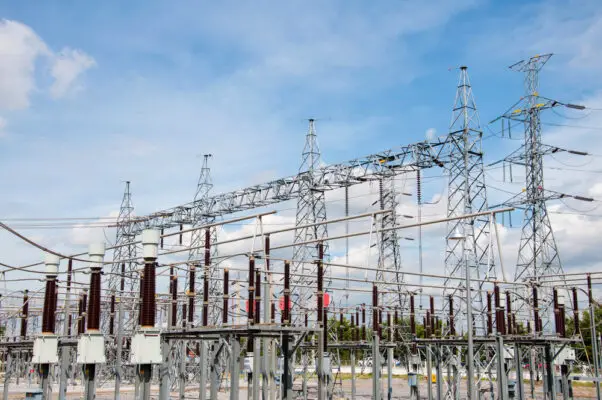As the world rapidly evolves with advancements in technology and infrastructure, Utility Project Management is a significant arena that stands on the frontline of these transformations.
The role of a Utility Project Manager can be multifaceted and complex—charged with planning, executing, and overseeing utility projects and managing operational logistics, personnel, budgets, and risks; these leaders need a firm grasp of their responsibilities and requisite skills.
This article unfolds the role and responsibilities of Utility Project Managers, the emerging trends in this field, educational and qualification prerequisites, and the career growth and opportunities this sector provides.
The Role and Responsibility of Utility Project Managers
Every thriving business on the planet can be whittled down to a series of strategically coordinated projects. From launching a new product line to overhauling the IT infrastructure, project management is the powerhouse that drives growth, innovation, and, ultimately, success.
One domain where project management is particularly crucial is within the realms of utility industries.
Let’s delve into the roles and responsibilities of a utility project manager, the linchpin in the vast and complex sectors of electricity, water, gas, and renewable energy.
Like any project manager, utility project managers are charged with the overarching responsibility to lead a project from inception to completion.
Yet, their role is intensified due to the pivotal nature of utility services in the socio-economic fabric. Maintaining the temperamental equilibrium between operational efficiency, cost-effectiveness, environmental concerns, customer satisfaction, and regulatory compliance is no mean feat but is part of the everyday landscape for these professionals.
Planning and Design are essential parts of a utility project manager’s toolkit. They’re responsible for setting project goals, defining scope, budgeting, allocating resources, creating project schedules, and often overseeing the design aspects of the projects. Their work demands intricate knowledge about the functionalities and limitations of different utility systems.
Next comes the Execution. Utility project management isn’t for the faint-hearted. Managers must juggle numerous tasks, from coordinating construction work, automating utility systems, and setting up safety procedures to ensuring the project remains within budget and schedule. Courage, crisis management, and problem-solving are central to their execution role.
Monitoring and Controlling involves overseeing the project, ensuring everyone is performing their designated tasks, adjusting resources, and ensuring the project is on schedule and within budget. All while upholding the highest industry standards, safety regulations, and environmental practices.
The ability to communicate effectively with construction teams, stakeholders, or customers is among the most valued traits for utility project managers. They frequently act as the mediator between different interest groups, spearheading a compelling vision into unified action.
Risk assessment ties in closely with utility project management. Given the industry’s reliance on ever-changing technology, weather conditions, economic fluctuations, and policy reforms, predicting risks, devising mitigation strategies, and managing crises becomes indispensable.
Finally, sustainability and innovation carve out another critical role. With the rising global focus on green energy and sustainable practices, project managers are often expected to infuse innovative solutions and eco-friendly strategies into their projects.
Utility project managers are a hybrid of technical prowess, savvy problem-solving, budget controllers, and future-oriented innovators.
This role is a cornerstone within the utility sectors, proving to be instrumental in navigating the tightrope of supplying critical services amidst the mounting challenges of the modern world.
The world is accelerating, and utility project managers are at the forefront. As they juggle the complexity of multifaceted projects and drive the quest for progress and innovation, one thing remains crystal clear — utility project management isn’t merely about completing projects. It’s about powerfully shaping the future.

Emerging Trends in the Utility Project Management Field
Emerging Trends in Utility Project Management
The dynamic pace of technology and shifting industry demands are shaping the future of utility project management.
Market drivers such as renewable energies, customer engagement, efficiency, and adaptation to Life After Covid (LAC) have produced significant new trends in the sector. It’s time to delve further and reveal the driving forces behind the evolution of utility project management.
Firstly, embracing digitalization has ceased to be a choice and has become necessary for utility project management. Gone are the days when commitments were jotted down on post-it notes and workflows followed a linear, sequential pattern.
Today, project managers rely on digital technologies to streamline, automate, and optimize project delivery. Integrated systems and software like Enterprise Resource Planning (ERP) and Project Management Information Systems (PMIS) enhance operational efficiency and provide comprehensive dashboards for real-time monitoring and decision-making.
Secondly, the rise of AI and Machine Learning is influencing utility project management on a substantial level. Predictive analytics can be harnessed to simulate various project scenarios, assess risk profiles, and devise optimal mitigation strategies before actual implementation.
This predictive advantage will significantly reduce project uncertainties, optimize resource allocation, and enhance delivery timelines and budget forecasts.
Thirdly, sustainability is setting the trend in the industry, with project managers radically supporting renewable energy sources.
From solar, wind and hydroelectric energy projects, green initiatives are now the core focus. Aligning projects with Environmental, Social and Governance (ESG) principles are not just regulatory obligations but also efficient in fostering goodwill and enhancing brand credibility.
Another crucial trend is the increased emphasis on customer centricity. For utility project managers, adopting a customer-first approach involves continually improving service efficiency, delivery times, and quality to ensure customer satisfaction.
This emphasis on delivering an exceptional customer experience improves customer loyalty, amplifying a company’s competitive advantage.
Transparency and comprehensible reporting have become more critical than ever. Stakeholders now demand real-time data and analytics regarding project progress, financial health, and risk management.
An enhanced level of communication transparency opens up avenues for collaboration, trust-building, and efficient decision-making.
In conclusion, the trends shaping utility project management clearly reflect the ongoing digital transformation, industry evolution, and market dynamics.
Adjusting to these trends will be integral for firms to stay viable and competitive in these evolving times. However, staying updated and adapting to these trends ensures survival and offers a striking opportunity to lead the market and leave an indelible impact on the industry.

Education and Qualifications for Utility Project Managers
When delving into the qualifications required for utility project managers, it’s central to grasp the complex matrix of expertise necessary and the varied backgrounds that effectively contribute to these pivotal roles.
A fusion of educational acumen, technical know-how, and a solid understanding of present-day trends in technology, sustainability, customer centricity, and transparency are indispensable.
Academically, most utility project managers possess a degree in engineering, management, or business administration.
But these foundations often come bolstered by master’s degrees in Project Management or an MBA in operations management. Such robust educational backgrounds aid their understanding of both the theoretical underpinnings and practical implications of managing utility projects.
Alongside formal education, specialized industry certifications add a lustrous edge to a utility project manager profile.
Certifications like Project Management Professional (PMP), Certified Utility Management Professional (CUMP), or Leadership in Energy and Environmental Design (LEED) demonstrate a commitment to staying current in the field and bringing added value to their capabilities.
As technology continues redefining our business landscapes, utility project managers are expected to be conversant with digital tools essential for productivity and project-based organization.
Competency in project management platforms, building information modelling (BIM) and Geographic Information Systems (GIS) is often required. Additionally, familiarity with emerging who’s-who in tech – artificial intelligence and machine learning – offers a competitive edge.
Spotlight on sustainability and renewable energy is not a new trend. But the call to transition towards a low-carbon economy has been amplified, impacting the utility project management sector.
Managers today must understand the integration of renewable energy sources and the potential roadblocks to effectuate the transition.
The turn of the decade has seen a decisive move towards customer-centric practices across all industries, and utility project management is no exception.
Today’s managers need to focus on stakeholder satisfaction and emphasise transparency. They should possess the acumen for detailed, honest reporting and excellent interpersonal skills to engage and communicate effectively with their client base.
In sum, the role of a utility project manager requires a strategic blend of formal education, certifications, technological savvy, sustainability and energy management knowledge, combined with customer-centric and transparency skills.
This dynamic role is ever-evolving, continually necessitating further education, adaptation, and innovation. Preparing for the future of utility project management means investing in these areas to shape the industry’s course for years to come.

Career Growth and Opportunities in Utility Project Management
Understanding utility project management has made it clear that successful growth in this field requires a commitment to ongoing education and obtaining relevant qualifications.
A winning utility project manager not only has an educational background in engineering, management, or business administration but continues to invest in additional qualifications, such as a Master’s degree in Project Management or an MBA, to sharpen their skills and remain ahead of the competition.
Moreover, specialized industry certifications such as PMP, CUMP, and LEED provide additional value, affirming the holder’s competence in project management. These certifications indicate a willingness to continue learning and an understanding of the ever-evolving dynamics of the utility industry.
Equally important is the knowledge and application of technology in project management roles. Understanding and applying tools such as project management platforms, Building Information Modelling (BIM), Geographic Information Systems (GIS), Artificial Intelligence (AI), and machine learning can significantly enhance a manager’s efficiency.
In an era swathed in data, leveraging these technologies is no longer optional; it’s necessary, forming the bedrock of effective decision-making and strategy development. Yet, amidst this digital whirlwind, utility project managers must not lose sight of the human element in their work.
Exceptional interpersonal skills and communication abilities are paramount for utility project managers. Project managers thrive by developing and maintaining healthy professional relationships as liaisons between multiple stakeholders.
Their ability to articulate project goals, progress updates and handling of delicate situations all contribute to their success.
The push for sustainability and renewable energy integration also underscores the importance of the project manager’s role; they are often key agents of change, navigating the shift in energy paradigms.
Front-running utility project managers understand that they are crucial in defining a sustainable future.
Forward-looking project managers prioritize customer-centric practices, recognizing that customer satisfaction fuels business success. Transparency, too, is crucial as customers increasingly demand clarity and honesty from the businesses they interact with.
Indeed, the landscape of utility project management is in steady flux, shaped by innovations in technology, evolving customer expectations, and an urgent need for sustainable practices.
Adaptable project managers who embrace these changes stand a better chance of achieving successful careers.
In summary, a career in utility project management is rewarding but requires a continued emphasis on learning, technological adaptability, and interpersonal skills.
Most importantly, utility project managers must recognize and rise to the challenges of shifting energy paradigms – embracing sustainability is the definitive way forward.

Conclusion
One can uncover the intricacies and diverse career paths of utility project management by understanding its dynamic nature.
The knowledge about the significant responsibilities, the ever-changing trends, academic requisites, and promising career opportunities can prepare one to step confidently into this landscape.
This information enlightens those considering a utility project management career and offers established professionals the impetus to adapt and grow continually. Wading into this challenging yet rewarding field promises not just a job but a journey of constant learning, evolution and an opportunity to contribute to the burgeoning utility sector.

Chris Ekai is a Risk Management expert with over 10 years of experience in the field. He has a Master’s(MSc) degree in Risk Management from University of Portsmouth and is a CPA and Finance professional. He currently works as a Content Manager at Risk Publishing, writing about Enterprise Risk Management, Business Continuity Management and Project Management.


